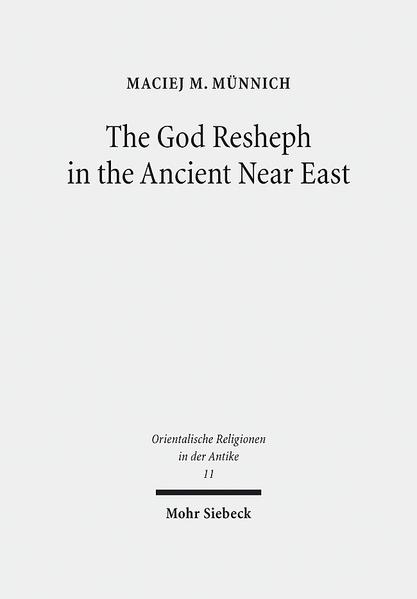MÜNNICH,M., The God Resheph in the Ancient Near East. Tübingen 2013.
The God Resheph in the Ancient Near East. 1. Aufl. Tübingen, Mohr Siebeck, 2013.
19 x 27 cm. XIV, 320 S. Leinen. (Orientalische Religionen in der Antike, 11). ISBN 9783161524912.
Resheph was quite a popular god in the 3rd and 2nd millennia BC – especially in Syria – but during the 1st millennium his cult became extinct. Finally it was only maintained in several peripheral and isolated sites, such as in the Palmyra desert and in Cyprus. Maciej M. Münnich presents the written sources which mentioned Resheph and analyzes the features of Resheph’s cult. He emphasizes that there is no confirmation for the theory that Resheph was a lord of the netherworld. Resheph was a belligerent, aggressive god who used diseases to attack people, but who could also heal. In Egypt, Resheph was originally venerated as the deity who supported the Pharaoh in battles, but then he was summoned mainly because of illness and everyday needs. In ancient Israel, Resheph was at first reduced to the level of a demonic assistant of Yahweh, but his name then became a common term, always however in reference to the character of the deity. Among the Hurrites, Resheph appeared as a divine guardian of trade. He was not treated as a solely harmful, dangerous god, as has been suggested in numerous previous studies.
Bestellnummer: 2602VB
Gebundener Ladenpreis: EUR 144,--

